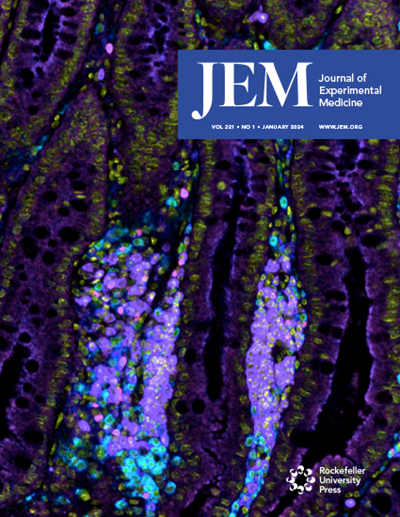朱迪-利伯曼:对科学保持好奇和兴奋。
IF 12.6
1区 医学
Q1 IMMUNOLOGY
引用次数: 0
摘要
朱迪-利伯曼(Judy Lieberman)是哈佛大学医学院儿科教授和遗传学兼职教授,也是细胞与分子医学捐赠讲座教授。她的实验室研究细胞毒性 T 淋巴细胞 (CTL)(抗病毒感染和癌症免疫防御的关键细胞)、颗粒酶激活的分子途径,以及 RNA 干扰 (RNAi) 如何调节健康和疾病状态下的细胞分化。我们采访了朱迪,请她谈谈对职业生涯早期研究人员的建议、她是如何开始对细胞毒性T淋巴细胞感兴趣的,以及在她职业生涯中提供指导的关键人物。本文章由计算机程序翻译,如有差异,请以英文原文为准。
Judy Lieberman: Stay curious and excited about science.
Judy Lieberman is a professor of pediatrics and adjunct professor of genetics at Harvard Medical School and an endowed chair in cellular and molecular medicine. Her lab studies cytotoxic T lymphocytes (CTL), key cells in the immune defense against viral infection and cancer, as well as molecular pathways activated by the granzymes, and how RNA interference (RNAi) regulates cell differentiation in health and disease states. We spoke to Judy about advice for early career researchers, how she first become interested in cytotoxic T lymphocytes, and key people who have provided mentorship across her career.
求助全文
通过发布文献求助,成功后即可免费获取论文全文。
去求助
来源期刊
CiteScore
26.60
自引率
1.30%
发文量
189
审稿时长
3-8 weeks
期刊介绍:
Since its establishment in 1896, the Journal of Experimental Medicine (JEM) has steadfastly pursued the publication of enduring and exceptional studies in medical biology. In an era where numerous publishing groups are introducing specialized journals, we recognize the importance of offering a distinguished platform for studies that seamlessly integrate various disciplines within the pathogenesis field.
Our unique editorial system, driven by a commitment to exceptional author service, involves two collaborative groups of editors: professional editors with robust scientific backgrounds and full-time practicing scientists. Each paper undergoes evaluation by at least one editor from both groups before external review. Weekly editorial meetings facilitate comprehensive discussions on papers, incorporating external referee comments, and ensure swift decisions without unnecessary demands for extensive revisions.
Encompassing human studies and diverse in vivo experimental models of human disease, our focus within medical biology spans genetics, inflammation, immunity, infectious disease, cancer, vascular biology, metabolic disorders, neuroscience, and stem cell biology. We eagerly welcome reports ranging from atomic-level analyses to clinical interventions that unveil new mechanistic insights.

 求助内容:
求助内容: 应助结果提醒方式:
应助结果提醒方式:


